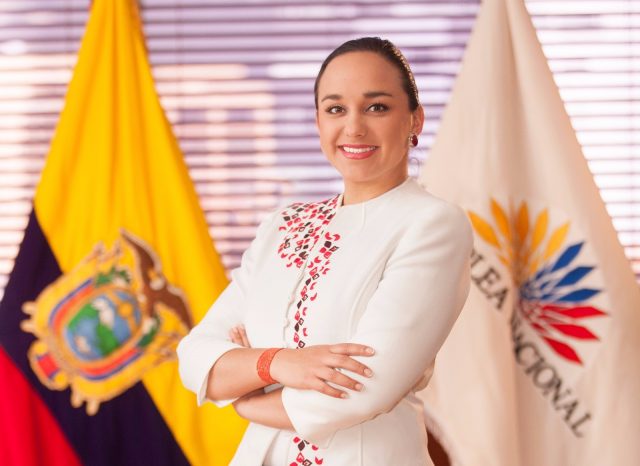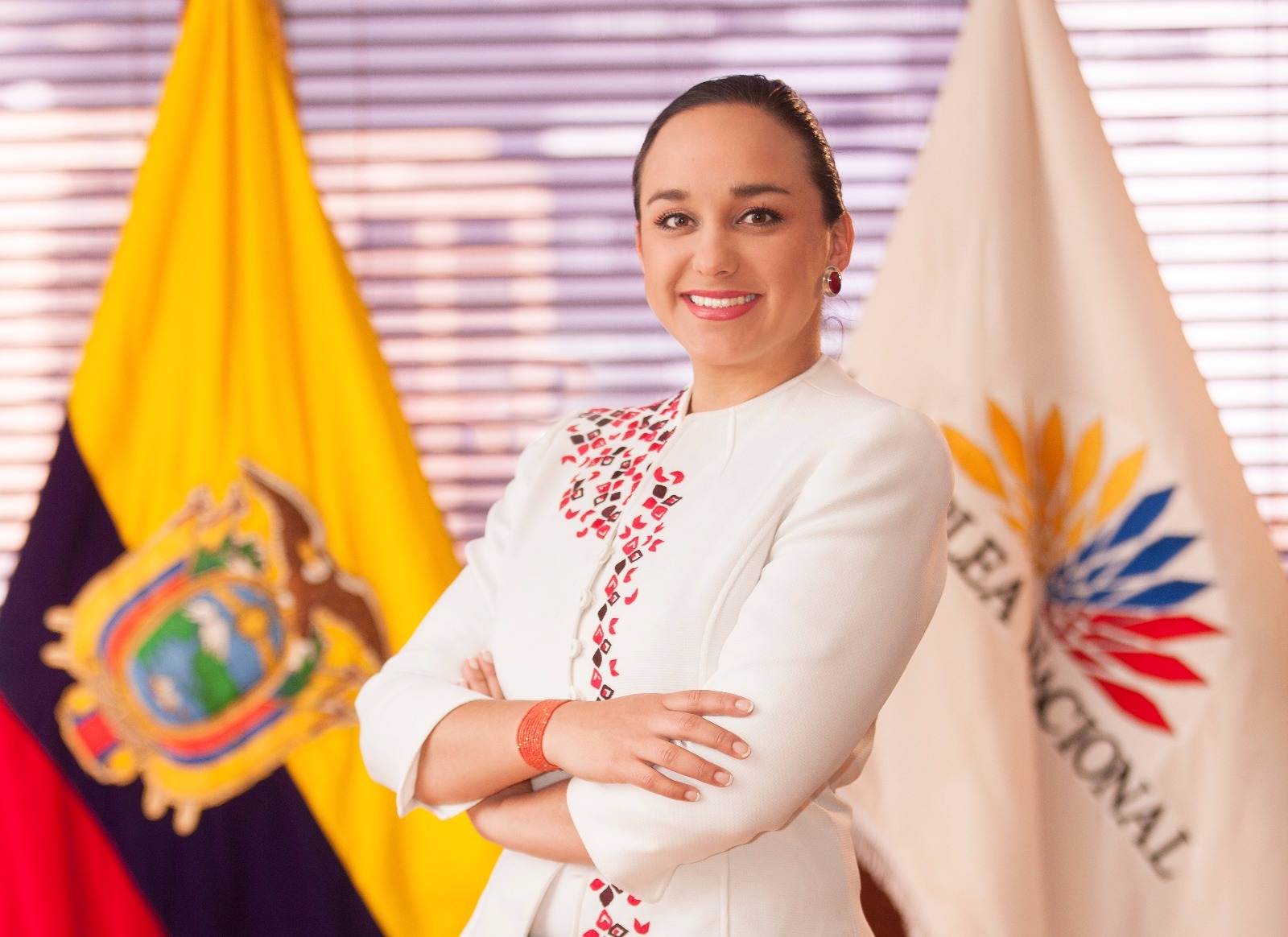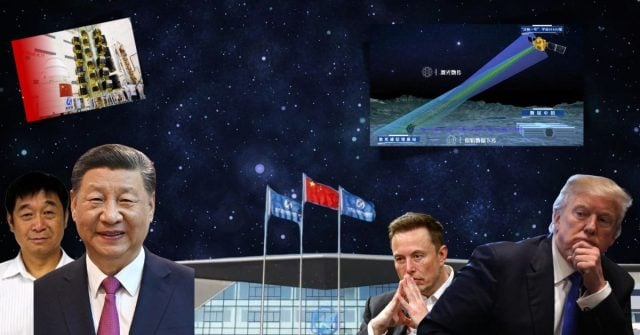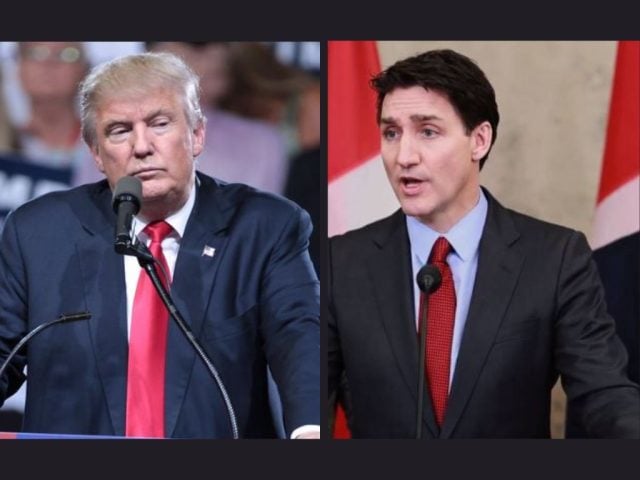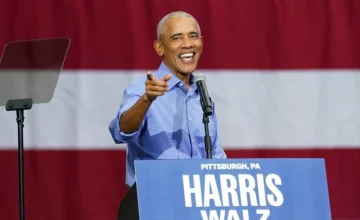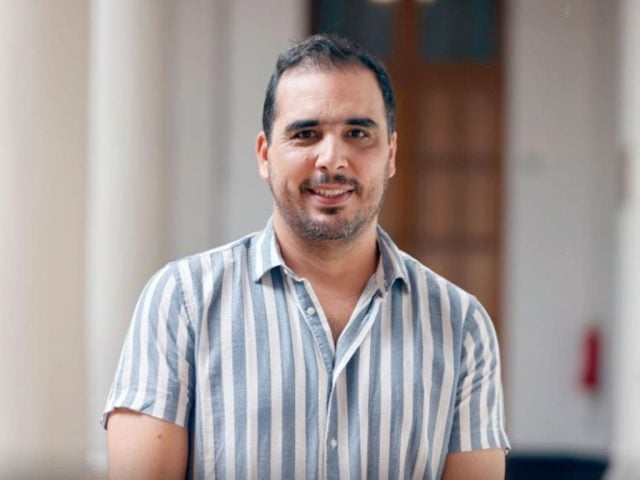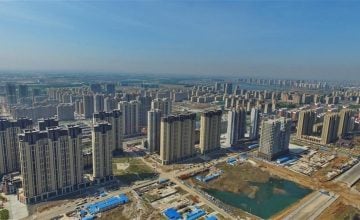Ecuador is preparing itself for the general elections scheduled for February 7 of this year. Voces sin Fronteras, led by Bruno Sommer and Denis Rogatyuk, prepared a special edition and in its first Chapter, Gabriela Rivadeneira, former assembly member of the South American nation, was interviewed.
During the conversation, Rivadeneira stressed that at this moment, «the right does not have a contender who is up to the task of the presidential dispute».
«That in one way or another, Ecuadorian progressivism requires to seek greater and better mechanisms of unity and cohesion in order to really have a viable dispute for the 2021 presidential election. It is a challenge not only for the Citizen Revolution, not only for the ‘Correismo’, but for Ecuadorian progressivism if we really want to enter the new progressive wave of South America”, she stated.
By Bruno Sommer and Denis Rogatyuk
BS: Once again, after several obstacles, the candidacy of the Arauz-Rabascall binomial has been ratified again. Do you think this is going to be the last boycott for this candidacy or not?
GR: Look at the candidacy of Andrés Arauz and Carlos Rabascall, as the binomial of the Citizen Revolution, it comes in the context of a whole series of systematic electoral blockade. I remind everyone who sympathizes with us, that it is not the first time that we have suffered a blockade, or a boycott, it has been practically three years since it was taken from us, since Alianza País was stolen and, in that sense, we have been requesting, for example, that we be recognized as ‘Citizen Revolution’ and the CNE denied us this, saying that it was the slogan of the previous Government. We asked that we be recognized as an Alfarista Revolution and they told us no because (Eloy) Alfaro (was) a liberal man of his time and we are an anti neoliberal movement.
Then, they gave us a ‘fingerprint locker’ to collect signatures, we collected half a million signatures and one day, before delivering the signatures, they gave the same ‘fingerprint locker’ to Lucio Gutiérrez’s people! Then we participated with Compromiso Social, we won two of the three largest prefectures in the country. Just before the candidacies for this period, they suspended Compromiso Social, which later they reactivated it, after we made an agreement with Centro Democrático Lista 1. And now the registration of the Andrés Arauz-Carlos Rabascall binomial has taken a little more than three months for approval within a kind of permanent appeals that were accepted by the electoral body and that justly showed that it was a systematic blockade.
Therefore, we started playing this match on a sloping court, with indications of electoral fraud, of which we have warned the international community, because it cannot be that in the middle of the electoral period the rules of the game change, like the extension of deadlines that were not foreseen and that even now, in Ecuador, a battle is being waged between the two institutions of the electoral body, which is the National Electoral Council and the National Electoral Tribunal, and now even with the participation of the Attorney General’s Office itself. It is practically an electoral crusade to the death that has us all waiting to see how it ends.
We are ending the year 2020, and on December 31 the campaign formally began and so far the rules of the game are not clear and especially in the internal dispute of the electoral body, where we have to see what happens because there are many sectors that are looking for the expansion of the electoral process, which would be disastrous for the Ecuadorian people.
So the alerts are not over yet and we have to continue denouncing this at a national and international level.
DR: The other anomaly that we have observed in recent weeks has been the possibility of lifting the candidacy of Álvaro Noboa, oligarchic and main political rival of Rafael Correa during the 2006 elections, but apparently the CNE has also rejected his candidacy or at least for the moment. Do you think that means there is some kind of tension in the ranks on the right?
GR: One of the scenarios that we have within the electoral process is precisely the weakness with which it has been presented in the presidential and parliamentary candidacies by the Ecuadorian right. Although it is true, at a certain moment (Guillermo) Lasso could have been considered as the best bet of the Ecuadorian right, but now, all the indicators – the national polls- all mark a stagnation in Lasso’s candidacy and a downward trend.
On the other hand, another part of the right, a right more anchored to international organizations and I refer to NGOism, USAID, etc., is also promoting the candidacy of Yaku Pérez, which has neither taken off nor had that deployment as expected by the Ecuadorian right.
Faced with this reality, they want to put a fourth candidate in the dispute, who is supposedly a candidate who could improve the numbers of both, that would mean that he could practically ‘annihilate’ Lasso.
A small piece of information: there are 18 presidential candidacies currently registered in Ecuador. Of those 18 candidates, three are those that are currently in the electoral observation indicators: the one led by Andrés Arauz, followed by Lasso and then, Yaku Pérez, but far below.
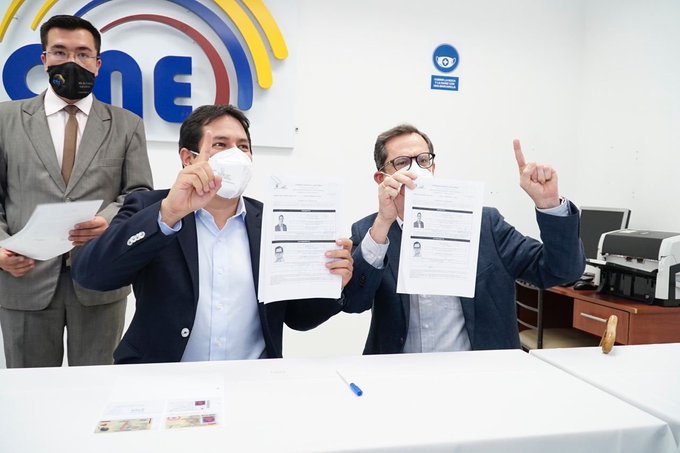
Therefore, the Ecuadorian right has also wanted to maneuver and play, so as to have a contender who can enter this dispute for the presidency. However, there are many economic interests, there have been many strong complaints at a national level against members of both the CNE and the Electoral Tribunal and, in that sense, I insist, since there were no clear rules, days before the electoral campaign began, we were still talking about the possibility that we could have another presidential candidacy, that is instability.
However, the assessment that is made is that the right is very weakened in the face of the electoral process. That has complicated the issue of having a viable candidate a lot, because any attempt can be real and feasible. We see that Rafael Correa won the presidential candidacy in 2006 to Álvaro Noboa, therefore he is a candidate that would already be in his sixth presentation for the presidential candidacy, but we are still waiting for the resolutions of the electoral body.
BS: You have played a very important historical role that Ecuador will hardly forget, as president of the country’s National Assembly. What is the role that Gabriela Rivadeneira would like to play in an eventual return to power of the Revolución Ciudadana (Citizen Revolution)? From what place would you like to contribute to your country?
GR: From the place I have always served. There are 13 years of militancy in the political project of the Revolución Ciudadana (Citizen Revolution), before that, my years of militancy within the cultural world and also of the first political organization in which I began my militancy that is Pachakutik.
Practically 13 years destined to strengthen the bases of the popular and national project of the ‘Citizen Revolution’, so I hope to continue contributing from there. I work and believe a lot in popular power, in the empowerment of citizens in the face of the actions of the State, in such a way that for us that is a key issue to continue to strengthen.
Institutionally or in terms of functions, we prefer not to have any type of support, there are many men and women involved. Today, Andrés Arauz has presented – within his work proposal – to incorporate many young people with scholarships from the Ecuadorian Government into the action plan of the Government and at this moment they are practically with the possibility of staying in the countries where they had the scholarships due to the lack of opportunities in Ecuador, losing a large proportion of human talent.
That is why Andrés Arauz has said that he is going to incorporate all these young people into the work of the Government, precisely to give it greater dynamism.
So we are betting on just that, on a very important renewal of those governmental ranks. However, I believe that my fundamental contribution is going to be what I have been working on all these years, which is to support the organizational part of the militancy, of the people who are active in the project of the Citizen Revolution.
DR: Why in your opinion will the citizens not vote for the strongest rival of the Citizen Revolution, in this case we are talking about the candidacy of Guillermo Lasso?
GR: Lasso is directly identified with one of the greatest economic crises that Ecuador has experienced, apart from this one. Obviously, we are now experiencing an economic crisis without precedent in Ecuadorian history, precisely the product of the lack of leadership, planning, ordering and prioritizing the people that the government of President Lenín Moreno and his allies have demonstrated.
In this sense, Lasso is clearly identified with the bank holiday, he was one of the promoters and fundamental actors in the banking holiday plot, but in addition Lasso has been the governing with Moreno during these almost four years of government. That is, while Moreno beat Lasso at the polls with the ‘turnaround’ that Moreno made in Ecuador, what he did is position and execute Lasso’s government plan, that is, of the losing candidate.
Therefore, Lasso has been directly responsible for everything that is happening in Ecuador, including the issue of the economic debacle that we are experiencing at the moment. If we look at who the ministers of the economic area have been, we are going to identify Richard Martínez, who is Guillermo Lasso’s right-hand man and who has been part of his team for many years. Who is he then? The former finance minister who now has to face impeachment proceedings in the National Assembly for paying more than three million dollars to bondholders of the International Monetary Fund (IMF) in the midst of a pandemic, while people died in the streets, Richard Martínez preferred to pay, and the Moreno and Lasso government preferred to pay foreign debt.

And, in this sense, it is not only a co-governance, but it is a collective governance that Moreno, Jaime Nebot and Guillermo Lasso have had, who now show themselves as allies. So now, any type of doubt that we could have had on the ‘alliances’ of who were who ruled, is closed.
Now people identify, compare, and what people are seeing is ‘perfect’. If we had ten years of development, of a growing economy in Ecuador, if we had ten years of political and legal stability that brought national and foreign investments and in these three years we are practically falling to the bottom of the ravine, they start to identify which are the recurring actors within this Government, with Moreno, Nebot and Lasso. So now people say ‘we do not want to vote for those who have been responsible for the debacle in which we are living now in Ecuador’, therefore Lasso is definitely not an option.
In addition, he is quite complex, let’s say in his health. He has had quite complex situations in public that show his rather complicated state of health. That does not generate confidence in the Ecuadorian population either.
There is quite a lot of evidence that the right wing – at this time – does not have a contender who is up to the challenge for the presidential dispute, and that in one way or another requires Ecuadorian progressivism to seek greater and better mechanisms of unity and cohesion in order to really have a viable dispute for the presidential of 2021. It is a challenge not only of the Citizen Revolution, not only of the ‘Correísmo’, it is a challenge of Ecuadorian progressivism if we really want to enter the new progressive wave of South America that is brewing, from Mexico, now Argentina, again in Bolivia, Chile with the Constituent process and now it is up to Ecuador to face that fundamental challenge of this wave. So today, it is a task of progressivism as a whole.
BS: The IMF has given Ecuador a loan for $ 2 billion again. Do you think Moreno’s intention is to give the incoming government a country with high external debt?
GR: Yes, of course. It already has it. When we finished the government, or when we handed over the government in 2017, they practically accused us of leaving the country over-indebted. Ecuador has a characteristic and that is that in the Constitution, the maximum external debt ceiling is 40% in relation to the Domestic Product Gross, in such a way that everything that comes after that is unconstitutional.
In this framework and under this logic, we precisely preserve and deliver the country with a consolidated external debt of 38%. However, today we are reaching, by the same data published by the IMF, close to 50% of external debt. What does it mean then? What Moreno did was put Ecuador into debt in these last three years, much more than Ecuador got into debt in the ten years of Rafael Correa’s presidency. These are the inconsistencies that we have within the official voices and the data that he wants to leave within Ecuador.
In such a way, that now, we are going to have a very complex country, let’s say within governance because it is a country and it is a government that is going to have to face a very high external debt. Secondly, it is going to have to face an economic crisis that – according to latest ECLAC reports – establish that Ecuador could be closing the year 2020 with less than 12% decrease, that means that we are in the worst and largest economic crisis recorded in Ecuadorian history. It will have to face all the backwardness as a result of the mismanagement of the COVID-19 pandemic. We are the second country in the world with the highest death rate as a result of the pandemic. The situation is very complex.
Now, the government of Arauz and Rabascall must return to the planning of the State, the rule of law must return and must really turn its gaze towards the priority, which is the well-being and improvement of the quality of life of the people, in an immediate and emergent way, and for that, there are 10 future goals that have been marked within the government plan.

To all, we invite them to review precisely the WikiPlan, which is the entire digital platform of the campaign proposal, but in addition to also recovering and calling the Ecuadorian citizens to participate in the emerging proposals that we have to carry out within the Government of Arauz and what will be at least the first 100 days that will be days of reorganization, restructuring, re-institutionalization of the State in order to truly meet the demands of the citizens.
So the work is very strong and the reality is quite complex.
DR: What is the role of feminism within this Coalición Unión por la Esperanza (Union for Hope coalition) and what are the feminism proposals in the Government program to narrow the economic gap that exists between men and women in Ecuador?
GR: Thank you Denis for this question because it is also very interesting to listen and especially to bet on a feminist government. Andrés Arauz mentioned it with absolute clarity that we are going to be a feminist government and, in that sense, what does a feminist government mean? It precisely means seeing what the data are saying and what is the reality of the most vulnerable sectors that are affecting the realities of women.
Among these, we find a whole range of problems, firstly the issue of the lack of work and decent work, ignorance, the invisibility that we have again of women domestic workers who, within the period of the Citizen Revolution, were given the compulsory social security for housewives, paid domestic workers and for the ‘unpaid’ the issue of voluntary affiliation to social security, the issue of retirements that continue to be worrisome because when we speak in addition to poverty, we see what the range of poverty is and how poverty is divided between men and women, we realize that the figures are still dire and much more painful for women.
Women not only suffer within the range of poverty but – within that poverty – they suffer from violence and within that violence, even one of the typifications that we have in Ecuador, femicide.
So, when we start to look at social security issues, retirement issues, decent work issues, economic autonomy, generating conditions for the economic autonomy of women, then we are betting on an independence that will not support and stop the indicators of violence that is often exercised in Ecuadorian families due to that dependence, mainly economic, that women have in face of men.
So we have to attack the root problems, and to attack them at the root we need to see where the origin of the problem is and we continue to fall back on the issues of poverty indicators. In such a way, that within the government plan with Andrés Arauz we have a whole amalgam of projects and programs that will continue with permanent campaigns to eradicate violence because it cannot happen, and also a projection policy, of prospective of what is what we want in terms of autonomy of the body, economic autonomy, autonomy of thought, freedom and exercise of work, and in that sense we are talking about a whole compendium of this type of policies.
So to us, this second stage of the national and popular political project of the Citizen Revolution, led by Andrés Arauz and Carlos Rabascall, declares itself as a feminist government, then we are in tune with everything that is happening worldwide. When we are talking about the women’s sector, we must have a priority policy for that sector.
So we are very excited about this, very happy to receive both in WikiPlan and in Andrés Arauz’s territorial visits different proposals and permanently proposals, on the policies that should be implemented to achieve a feminist government, and that this Citizen Revolution project has the face of a woman has definitely been important to us.
BS: Andrés Arauz has defined that in his first week in office, after obtaining the victory, he is going to carry out a program that caught my attention because he makes a targeted and direct delivery to the population of a thousand dollars per family . I want to know a little more about it, if you know how it works, who will be the beneficiaries? where he has thought to obtain these resources?
GR: Yes, because this has also been quite controversial. There are sectors that want to debate a proposal that is already being analyzed in Europe and that is even being considered in the United States, since it is the issue of these support or emerging aid to citizens who not only allow us to survive at a time like the one our countries are experiencing, but also to initiate the logic of the emerging economic reactivation.
It is not a bonus in itself, but is a matter of a direct delivery of a thousand dollars that will be made precisely to all the people who appear in the social registry. What is the social registry? We strengthened the social registry in the Citizen Revolution and they are all the people who are part of the 1st and 2nd poverty quintiles, this means the people who are in the poverty and extreme poverty indicators. When we talk about the social registry we are talking then that these people would get a thousand dollars with which they practically enter, not only to pay and can have accumulated, but directly to reactivate in purchases in the neighbor’s store, in the market, in payments for basic services or in matters of medicines. That is, you inject money directly to the economic reactivation. This is not refundable, it is not a credit, therefore, this goes in favour of the economic reactivation of the country.

The country, as I was saying a moment ago, has increased poverty indicators in recent years. We have more than a million people who in 2020 lost their jobs, that is, a million more unemployed than the unemployment figure that already Ecuador had been bringing, in such a way that the situation is complicated. When we face this reality, deepened by the pandemic, then we have to see emerging reactivation mechanisms. There is even a very interesting proposal that is under analysis, in the sense that this is anchored in a small percentage to the direct purchase of the food directly from suppliers, that is, from producers, so as to eliminate that barrier that we have from food outsourcing and go directly to producers and that producers can supply basic food baskets, for a certain amount of these families of quintiles 1 and 2, which are the ones that will mainly receive the thousand dollars of immediate support for the economic reactivation.
So there are many proposals around the issue of the thousand dollars proposal and we bet on that. It is not a gift as the Ecuadorian right has been wanting to say, but that same right is the one that does not give alternatives or give opportunities for the real economic reactivation. The Ecuadorian right, anchored to Lasso’s candidacy, which has its money in tax havens, in offshore companies, which extract foreign currency from the country, which are attacking dollarization, while Andrés says’ we need dollars circulating in the economy of the country because dollars support dollarization ‘, so we are saying’ we are going to support dollarization ‘, we are going to make immediate economic reactivation, because we are betting on that immediate economic reactivation, and that Ecuadorian families can really survive in a moment of crisis as deep as Ecuador has, as a product of the inefficiency and mediocrity of President Moreno.
That is what the proposal of the thousand dollars refers to, it still continues to feed on other types of complementary proposals to really achieve an economic reactivation, because we do not get the reactivation going if the thousand dollars reach the family and goes to the bank payment or they keep it as savings for what may happen, we really need that money to enter the economic reactivation, so this is one of the bets that is being made within the Arauz and Rabascall government plan.
